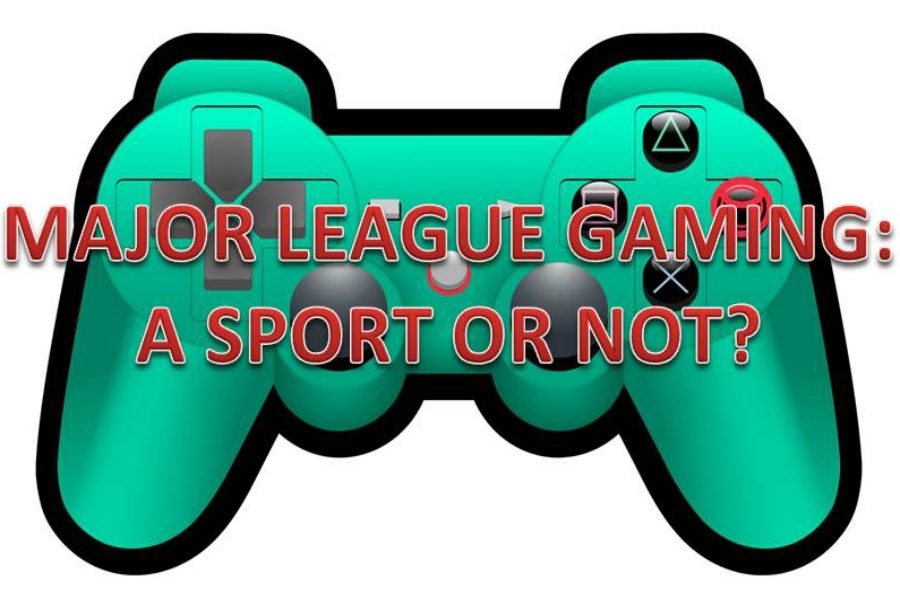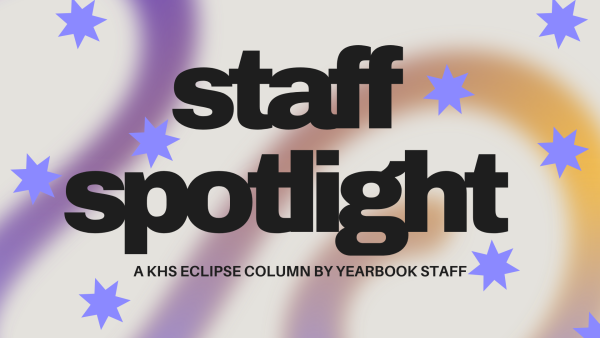Major League Gaming: Some call it a sport, others do not
IMAGE / Makenzie Schroeder
In this modern age of technology, a new profession has come about: professional gaming.
Professional gaming has become serious.
They now hold competitive matches with millions of dollars being the prize.
With the high popularity of competitive gaming, new “sporting events” have emerged called eSports (electronic sports) along with the professional gaming company: Major League Gaming, or MLG.
Since eSports currently has such a large audience, the U.S. government now recognizes professional gamers as athletes allowing the U.S. government to pay for visas allowing the “athletes” to come to the U.S for competitions and play for American teams.
In consideration of the U.S. government recognizing professional gamers as athletes, people are starting to debate on whether competitive gaming is a sport or not.
Many people view gaming as just a pastime that is fun and can be sociable.
The definition of a sport, according to Merriam-Webster, is a contest or game in which people do certain physical activities according to a specific set of rules and compete against each other.
According to this definition, professional gamers do a task similar to that, reinforcing the idea of competitive gaming being a sport.
Professional gamers have many parallel tasks with professional athletes; both must constantly train and keep up their skills, both play for a team and must communicate with that team, and both play in front of a live audience with thousands of fans.
Senior Jacob Rhoads believes professional gaming should be considered an actual sport.
“ESports are very similar to actual sports,” Rhoads said. “Professional gamers must have teamwork, consistently train to keep up skill, stay in shape, and even have sponsors, very much like a regular athlete.”
During the 2015 and 2016 Winter X Games, professional gaming was featured by ESPN during the event.
However, just because it was featured during the X Games, it does not make professional gaming a real sport.
For some, the featuring of eSports in the Winter X Games shows that professional gaming is viewed as a sport among many people in the Unites States.
But many people do not agree with the idea of eSports being an actual sport and think it is nowhere near being considered one either.
Many disagree because of the major flaw of professional gaming not being physically active.
Although it may not be physically strenuous, most top players in eSports are physically fit and eat healthy because staying in shape equates to a fit mind.
With professional gaming constantly using brain power to win, it is considered a mind sport.
A mind sport is a game of skill where the usage of mental exercise is greater than physical exercise, like poker and chess.
Despite the fact that professional gaming is a mind sport, it is not a legitimate sport.
Many want it to be accepted as a real sport as defined by Merriam-Webster, but many oppose the idea.
Senior Brennen Diehl does not agree with the the idea of professional gaming being considered a real sport.
“I understand that gaming uses a lot of strategic planning and training like many sports,” Diehl said. “But gamers just sit at a computer chair without any physical activity, which makes, in my opinion, professional gaming not a sport.”
With the debate about eSports being considered an actual sport, it coincides with when sports such as skateboarding and snowboarding, which are extreme sports, were not considered sports.
Extreme sports used to be only considered as a dangerous hobby or as a pastime, which is similar to professional gaming, despite the fact that it is not dangerous.
However, the idea that eSports is not being accepted as a sport, like when extreme sports were not being accepted, possibly shows a glimmer of hope for it becoming a legitimate sport in the near future.

Class: Senior
Sports: Tennis
Hobbies/Interests: Math, science, computers
Plans after High School: Attending Michigan State University or Central...

Class: Senior
Extracurricular Activities: National Honor Society, DECA
Sports: Varsity dance, varsity tennis
Hobbies/Interests: Reading, shopping,...










